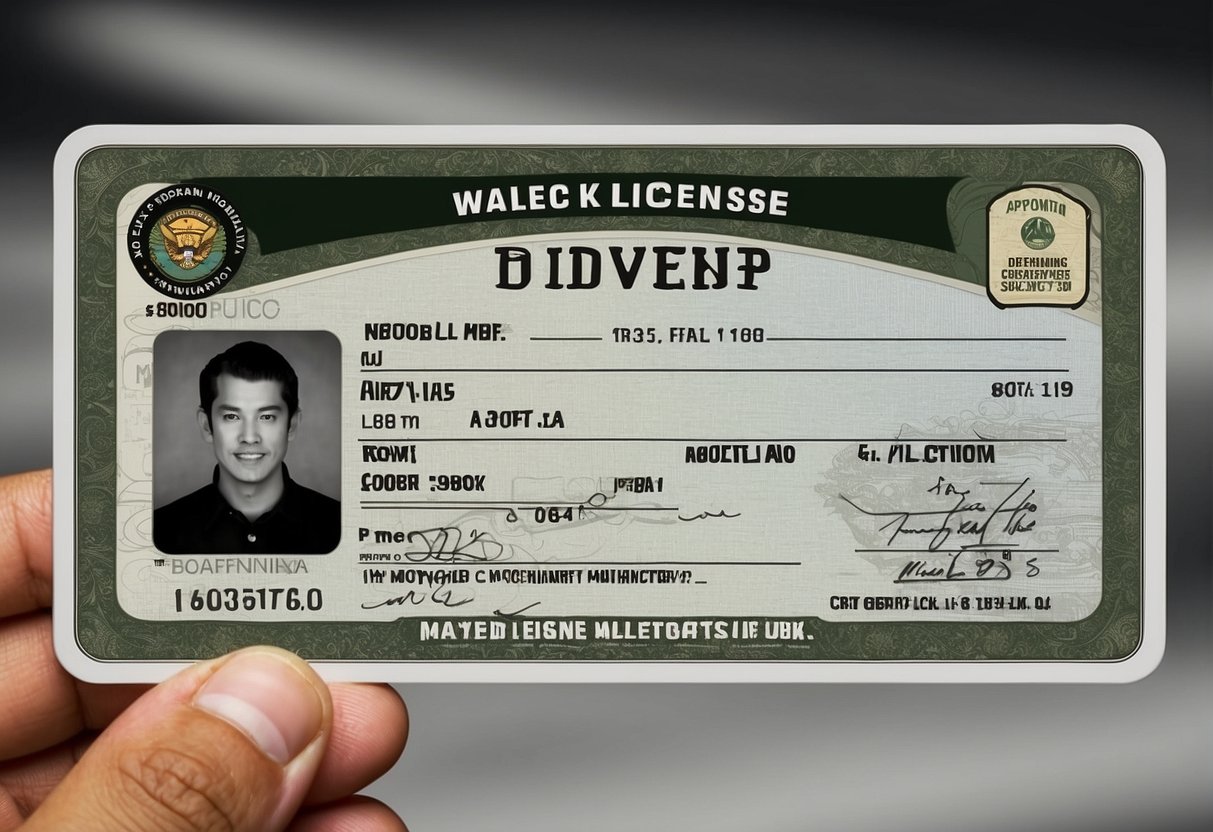Eligibility Requirements for Motorcycle License

To obtain a motorcycle license in Arkansas, applicants must meet certain eligibility requirements. The minimum age requirement for a motorcycle license is 16 years old. Before applying for a motorcycle license, applicants must first obtain a motorcycle permit and hold it for at least six months.
To be eligible for a motorcycle license, applicants must pass a vision test, a knowledge test, and a skills test. The knowledge test covers topics such as motorcycle safety, traffic laws, and road signs. The skills test evaluates the applicant’s ability to operate a motorcycle safely and effectively.
In addition to the tests, applicants must also provide proof of identity, residency, and Social Security number. The Arkansas Department of Finance and Administration (DFA) requires applicants to submit a completed application form and pay the appropriate fees.
It is important to note that Arkansas has different types of motorcycle licenses. Class M license allows the holder to operate any motorcycle or motor-driven cycle. Class MD license allows the holder to operate a motor-driven cycle with an engine displacement of 250cc or less. Applicants under the age of 18 are required to have parental consent to apply for a motorcycle license.
Overall, obtaining a motorcycle license in Arkansas requires meeting specific eligibility requirements and passing a series of tests. By fulfilling these requirements, individuals can enjoy the freedom and excitement of riding a motorcycle on Arkansas roads.
Steps to Obtain a Motorcycle License

To legally operate a motorcycle in Arkansas, an individual must obtain a Class M or Class MD motorcycle license. This section outlines the steps to obtain a motorcycle license in Arkansas.
Written Knowledge Test
The first step to obtaining a motorcycle license in Arkansas is to take and pass a written knowledge test. The test covers topics such as motorcycle operation, traffic laws, and safe riding practices. The Arkansas Department of Finance and Administration (DFA) provides a Motorcycle Operator Manual that contains all the information needed to pass the test. The manual can be downloaded from the DFA website or obtained in person at a local DFA office.
Motorcycle Skills Test
After passing the written knowledge test, the next step is to take a motorcycle skills test. The test evaluates the rider’s ability to operate a motorcycle safely and effectively. The test includes both off-street and on-street riding components. The off-street portion assesses the rider’s ability to control the motorcycle in a controlled environment, while the on-street portion evaluates the rider’s ability to apply safe riding practices in real-world scenarios.
Vision Screening
In addition to passing the written knowledge and motorcycle skills tests, all applicants must pass a vision screening. The screening evaluates the applicant’s visual acuity, peripheral vision, and ability to distinguish colors. If an applicant wears corrective lenses or glasses, they must wear them during the screening.
Once an individual passes all three tests, they will be issued a motorcycle license. It is important to note that individuals under the age of 18 must have a parent or legal guardian sign their application and accompany them to the DFA office when applying for a motorcycle license.
Motorcycle License Fees
Obtaining a motorcycle license in Arkansas requires paying a fee that varies depending on the type of license. The Arkansas Department of Finance and Administration (DFA) is responsible for issuing motorcycle licenses and setting the fees.
The Class M license is the most common type of motorcycle license in Arkansas. It costs $40 and is valid for eight years. To renew a Class M license, the licensee must apply 90 days before the expiration date.
For those under 18, the Class MD license is required. It costs a prorated fee and is valid for one month past the licensee’s 16th birthday. After turning 16, the licensee may apply for a Class M license.
It is important to note that the fees are subject to change. For the most up-to-date information on motorcycle license fees in Arkansas, visit the DFA website or contact your local DFA office.
Renewal and Expiration of Motorcycle License
In Arkansas, motorcycle licenses are issued by the Department of Finance and Administration (DFA). A Class M license is required to operate a motorcycle on public roads. The license is valid for eight years and must be renewed before the expiration date. The renewal fee for a Class M license is $40.00.
The renewal process for a Class M license requires completion of an application and payment of the renewal fee. The DFA sends a renewal notice to the license holder 90 days prior to the expiration date. The notice includes instructions on how to renew the license. The license holder can renew the license online or in person at a local DFA office.
If the license has been expired for less than 31 days, the license holder can renew the license without any additional requirements. However, if the license has been expired for more than 31 days but less than one year, the license holder must pass a vision test in addition to the renewal requirements. If the license has been expired for more than one year, the license holder must retake the motorcycle knowledge and skills test.
It is important to note that operating a motorcycle with an expired license is illegal in Arkansas. Therefore, it is imperative that all motorcycle license holders renew their license before the expiration date.
Safety Courses and Education
In Arkansas, riders can participate in motorcycle safety courses and education programs to improve their riding skills and promote safe riding practices. The Arkansas Motorcycle Safety Foundation (AMSF) offers a Rider Education Program that includes a Basic RiderCourse for beginning riders.
The Basic RiderCourse is designed for riders aged 16 and up, and consists of about 5 hours of learning, often through an online eCourse, before getting on a bike. During the course, riders learn basic motorcycle operation, safety gear requirements, and traffic rules. The course also includes both classroom and on-bike instruction, allowing riders to practice their skills in a controlled environment.
In addition to the Basic RiderCourse, the AMSF also offers more advanced courses for experienced riders, including the Advanced RiderCourse and the Ultimate Bike Bonding RiderCourse. These courses focus on advanced riding techniques, such as cornering, braking, and evasive maneuvers, and are designed to help riders become more confident and skilled on the road.
Overall, participating in a motorcycle safety course or education program can help riders improve their skills, reduce their risk of accidents, and promote safe riding practices. Riders in Arkansas are encouraged to take advantage of the programs offered by the AMSF and other organizations to improve their skills and stay safe on the road.

